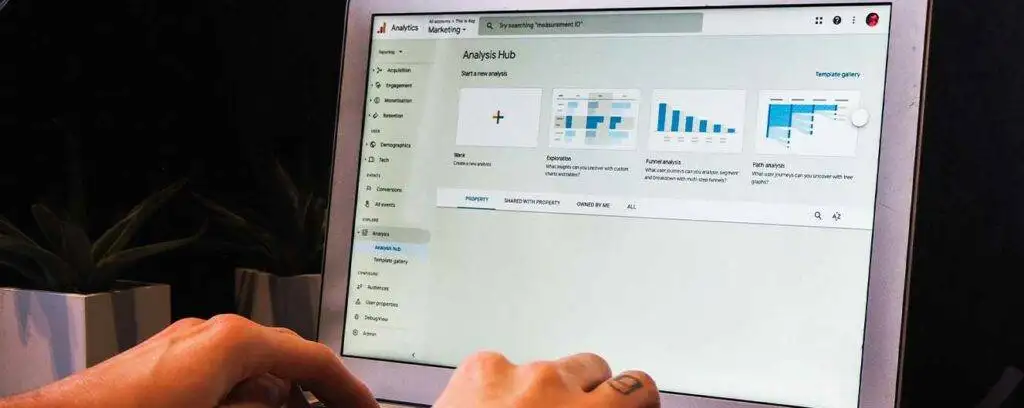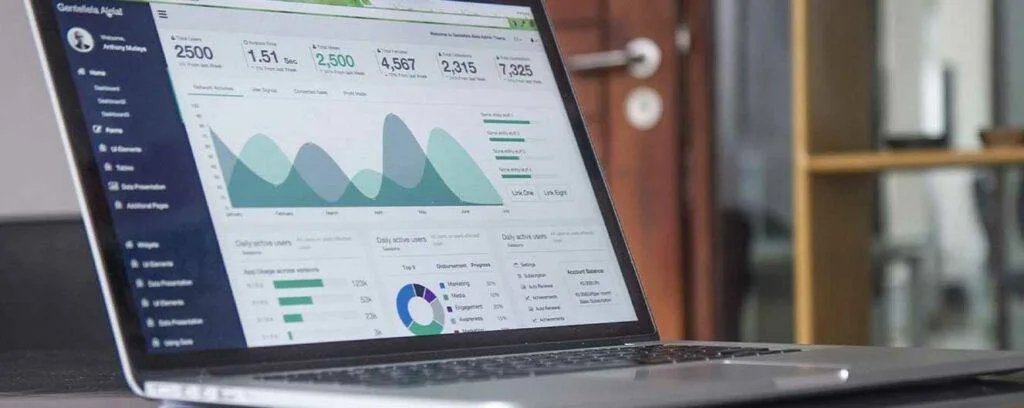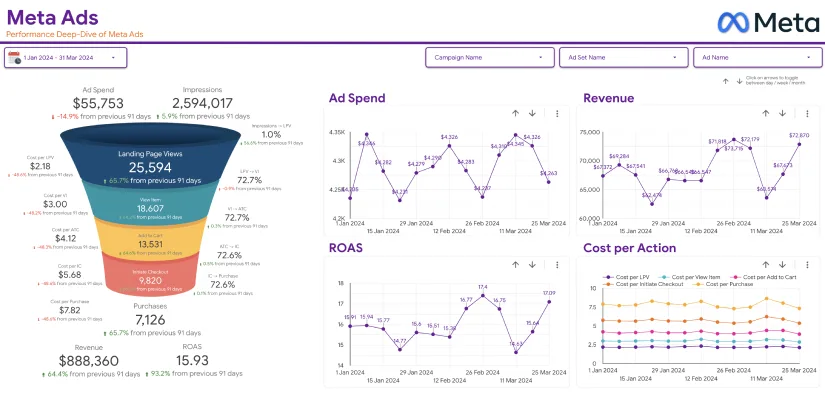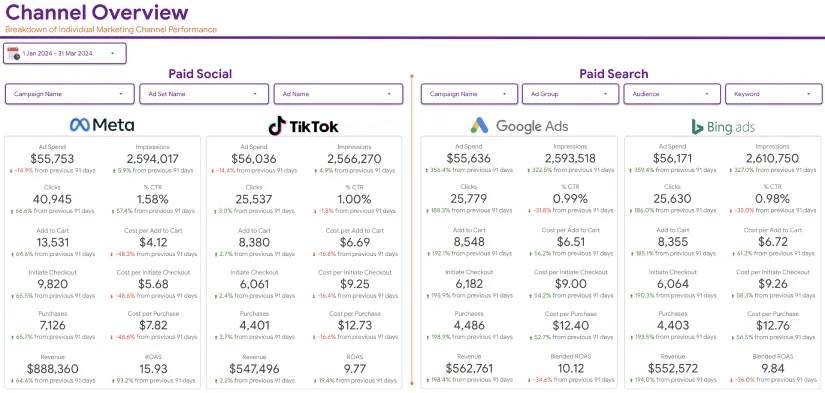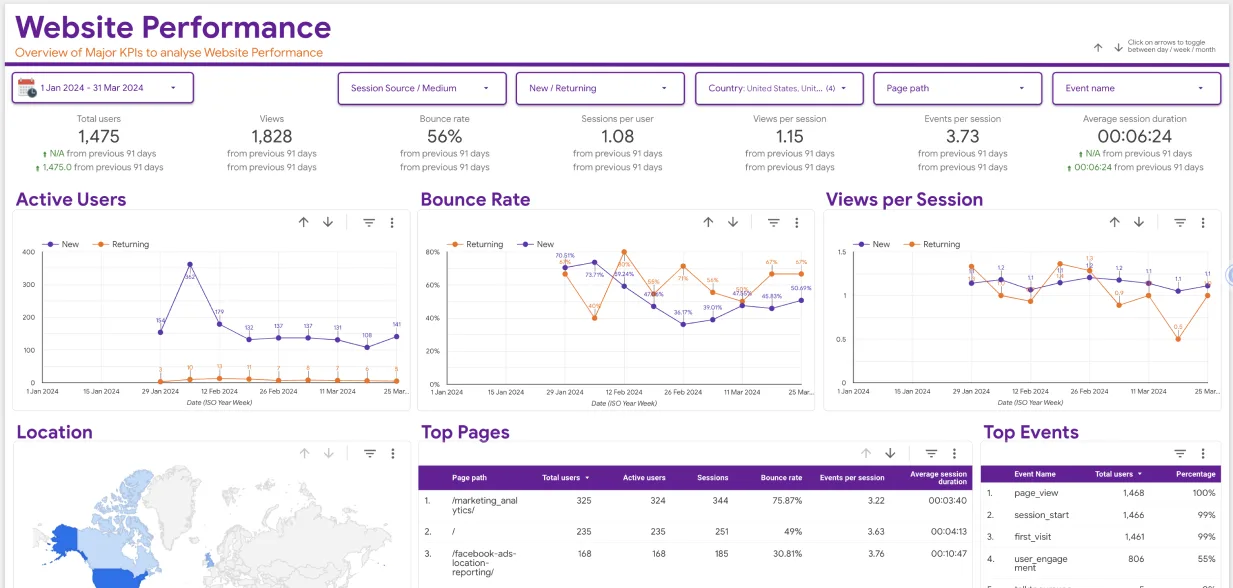What’s the point of a social media campaign if you do not have any idea whether the campaign has been successful in its goal? That is why you need to track your social campaigns. Collecting reliable and accurate data is the foundation to gain the actionable insights you require to make your important marketing decisions.
But marketers struggle to match Facebook click and conversion metrics against data in Google Analytics since both platforms track performance differently.
When it comes to Facebook Data vs. Google Analytics Data, there have been discrepancies as high as 80 percent in sectors where the targeted audiences are mobile users. In other cases, the difference has been about 50 percent.
So, why does not Facebook Data match what Google Analytics has to say? Well, the truth is Facebook Data, and Google Analytics Data will never completely match due to factors like tracking methods, attribution models, and Bounce Rate differences.
Here are the reasons why.
Facebook Data vs. Google Analytics Data: Reasons They Don’t Match
1. Cross-Device Conversions
There was a time when ads and conversions took place within the same web browser. It was during that time that Google Analytics used to be a helpful tool for measuring media. But now, we are living in an age where everyone is using mobile devices. People are always exposed to advertisements through their mobile devices.
For instance, you are commuting to work and start browsing on a mobile device. You see an ad, click on it, but don’t convert. However, later, as your sit in your office, you decide to check out the product that you had seen earlier. Google Analytics will not be able to characterize the conversion back to the previous click on the mobile device. So, the outcome is under-reporting of the results.
But Facebook can track conversions back to the users rather than the cookies. Thus, it’s possible to track the same user across different devices if they are logged into Facebook.
Since Google Analytics depends on cookies for its data, it means the tracking takes place on the browser where the cookie had been dropped.
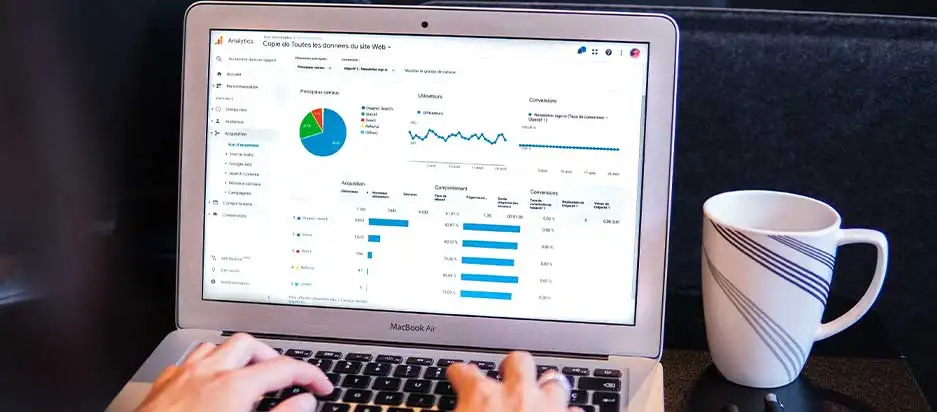
Facebook’s internal research has shown that mobile ads among the mobile ads that turn to conversion 35%-55% of them take place on laptops or desktops. It means the data tool is underreporting the mobile conversions almost by a third. As on Facebook, over half of the ads are on mobile devices, cross-device conversion can bring about a major difference in Facebook data vs. Google Analytics Data.
2. Clicks are Not the Same
One of the primary challenges faced by the advertisers is the number of Facebook click-throughs not matching the number of Google Analytics sessions.
Google Analytics just measures the session after the user clicks on the ads and lands on the website. Facebook, on the other hand, is going to track every click engagement whether that is comments, share, or like. In case the cookies in Google Analytics are not enabled, you will not be able to track them through Google Analytics.
In the case of Facebook reporting, there are endless metrics to measure the performance of the ads. Some of the most popular ones being ‘link clicks’ or ‘clicks.
When you consider clicks, it includes every interaction present on the ad, such as link click, like, or share to name a few. But ‘link clicks’ just include clicks taking place on the external link, such as a landing page on the website.
Other tracking tools, such as Google Analytics, include click conversions when someone clicks on the link as they are just tracking links.
3. UTM Parameters
Do you know that most of the tracking providers, like Google Analytics, use referrer URLs for credit conversion to ads? It means that most of the providers are going to end-up under-reporting the conversions of Facebook by 40%. This is because 40% of Facebook users browse the platform using ‘https’ rather than ‘http’.

Thus, when someone clicks on the ad on Facebook and is converting on the site, the referrer cannot be recorded as the user has left ‘https’ environments and set foot in the ‘http’ environment. This is the reason most of the providers under-report conversions to Facebook ads.
Likewise, for instance, if you close the ad tab while commuting and return to the site to purchase the product, when you are back home, the referrer URL won’t be there anymore. So, the analytics tools will take the sales into account as the brand user and will not attribute it to Facebook. Thus, it is outdated to expect the buying process happens in one session in the speedy digital ecosystem.
4. Clicks vs. Sessions
It is another cause of concern for digital marketers. There are several reasons behind the Facebook data vs. Google Analytics data discrepancy. Let’s look at them-
- In case a user is clicking on the Facebook post over once within a half-an-hour window, Google Analytics just tracks the session as one. Alternatively, Facebook takes it as more than one click.
- In case a user is clicking on a Facebook post and then visit the website, then becomes inactive for over 30 minutes, and re-engage with the site after 30 minutes, Google is going to record it as two different sessions. Facebook will report with just one click. If, one Facebook click is equal to two sessions.
- In case a user clicks on a Facebook ad accidentally by quickly jumping off to some other ad, Google Analytics is likely to have the opportunity to record the click as the page didn’t load completely.
5. Browser Preference and Ad Blocker Software
Remember, your tracking pixel isn’t going to be counted when the user has an ad blocker for their browser. Thus, it is going to lead to underreporting of conversions. So, the number of conversions is going to be lower than the real internal data.

No doubt, the settings and browser preferences of the site visitors might have an impact on their visit to your page’s report. For example, Google Analytics needs JavaScript, cookies, and images are to be enabled to report a visit to a page successfully. This can cause you to miss out on vital data when the preferences are not enabled.
So, browser preference or ad blocker software can be the reason behind Facebook data vs. Google Analytics data discrepancies.
6. Indirect Conversions
You must be aware of indirect conversions. A few users click on the page name present on the ad instead of the actual content. As they open a Facebook page, they might the website of the advertisers and then convert.
Users might click anywhere else on the ad, such as comment, like, and share, and then convert. In such a situation, Facebook will take this as clickthrough, but Google Analytics doesn’t.
7. Multiple Conversions
Facebook attributes many conversions to the ad that was last viewed or clicked if the user clicked or saw an ad and converted several times. But Google Analytics just allows one-per-click attribution that means just one conversion is going to be counter per user instead of the actual number of conversions.
8. Conversion Rate
Conversions are reported during the time of conversion or at the time of the view.
Google Analytics reports on the time conversion, but Facebook reports during the click or view of conversion. When an ad gets an impression on 12th April, and the conversion happens on 15th April, Facebook reports the conversion for 12th April. Nevertheless, Google Analytics is going to report the conversion on 15th April.
9. Attribution Window
Facebook conversion analysis considers conversions based on the 28-hour click-through and 24-hour view window. Hence, any comparison data against other tracking data should compare the same attribution time.
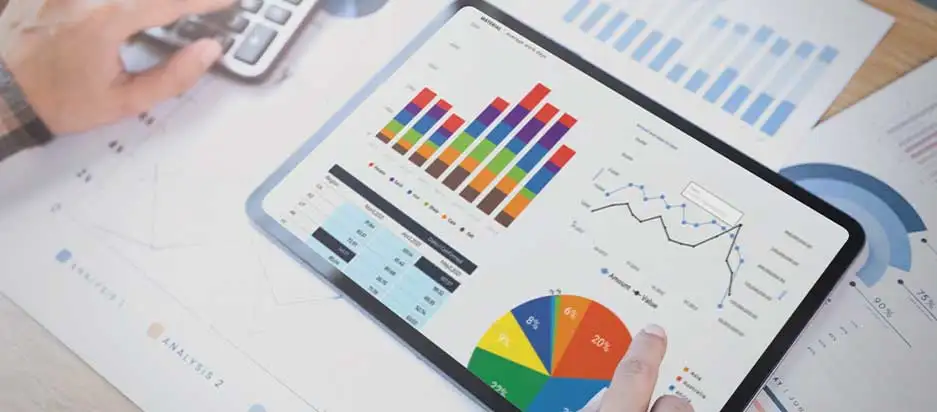
Google Analytics applies the last interaction model that attributes the whole conversion value to the last channel the customer corresponded with prior to converting or buying.
For updating the attribution window in Facebook. You must Customize Columns and then select the window that caters to your requirements.
10. Wrong Page has Been Set as the Conversion Page
Another reason why Facebook data vs. Google Analytics data don’t match is setting the wrong page as the conversion page. You might have placed the Facebook pixel on the wrong conversion page, and this might be causing you to report an increasing conversion number.
Facebook cannot understand what conversion means for the business. Thus, it is crucial that you define it. But if you define it wrong, Facebook is going to show inaccurate outcomes.
People make the common mistake of assuming that pixel is on the landing page of sales. The user visits this page just when they click on an ad. In case a user visits the page, they don’t usually convert. For tracking the conversions of the campaign accurately, you must put a pixel on the Facebook page the user is going to see instantly after conversion. A good example of this is the sign-up form. In much of the case, the page is going to be a ‘Thank You’, thanking the user for completing the purchase or signing up.
11. Limited Visits
When it comes to the Facebook data vs. Google Analytics data, you must consider the conversion data, as well as conversion time.
In the case of Google Analytics, Google limits visit to the site to once every half an hour for each visitor. But it also prevents any spam visits from being tracked and disregards the visitors within the same timeframe.
However, Facebook does not use this limit. Hence, it can report on multiple visits for each user within the 30-min timeframe. There is a good explanation for data confusion in this aspect. If a user clicks on an ad several times and then opens the website several times within 30-minutes, Facebook is going to report it as multiple clicks. While Google Analytics will only report it as one click.

These are some of the most common reasons why Google Analytics and Facebook data don’t match up. A few additional reasons are given below-
- Visitors located in various time zones
- Loading the page from cache
- Visitors of some data filters
Facebook Data vs. Google Analytics Data Bottom Line
During your Facebook Data vs. Google Analytics analysis, you must keep in mind that they two are different platforms. At times, it is not about fixing the discrepancies but about accepting the fact that Facebook and Google Analytics are complementary tools that collaborate to provide marketers with a better understanding of the ad performance.
If you use Eaglytics.co’s Facebook Ads templates, you can streamline your ad reporting. And you will be able to see the effect the ad is having on the business. Our Facebook Ads reporting tool covers every ground of Facebook marketing. You can also track your website traffic and their behavior with our custom-built Google Analytics Templates. Thus, you will be able to improve the bottom line of your business.

